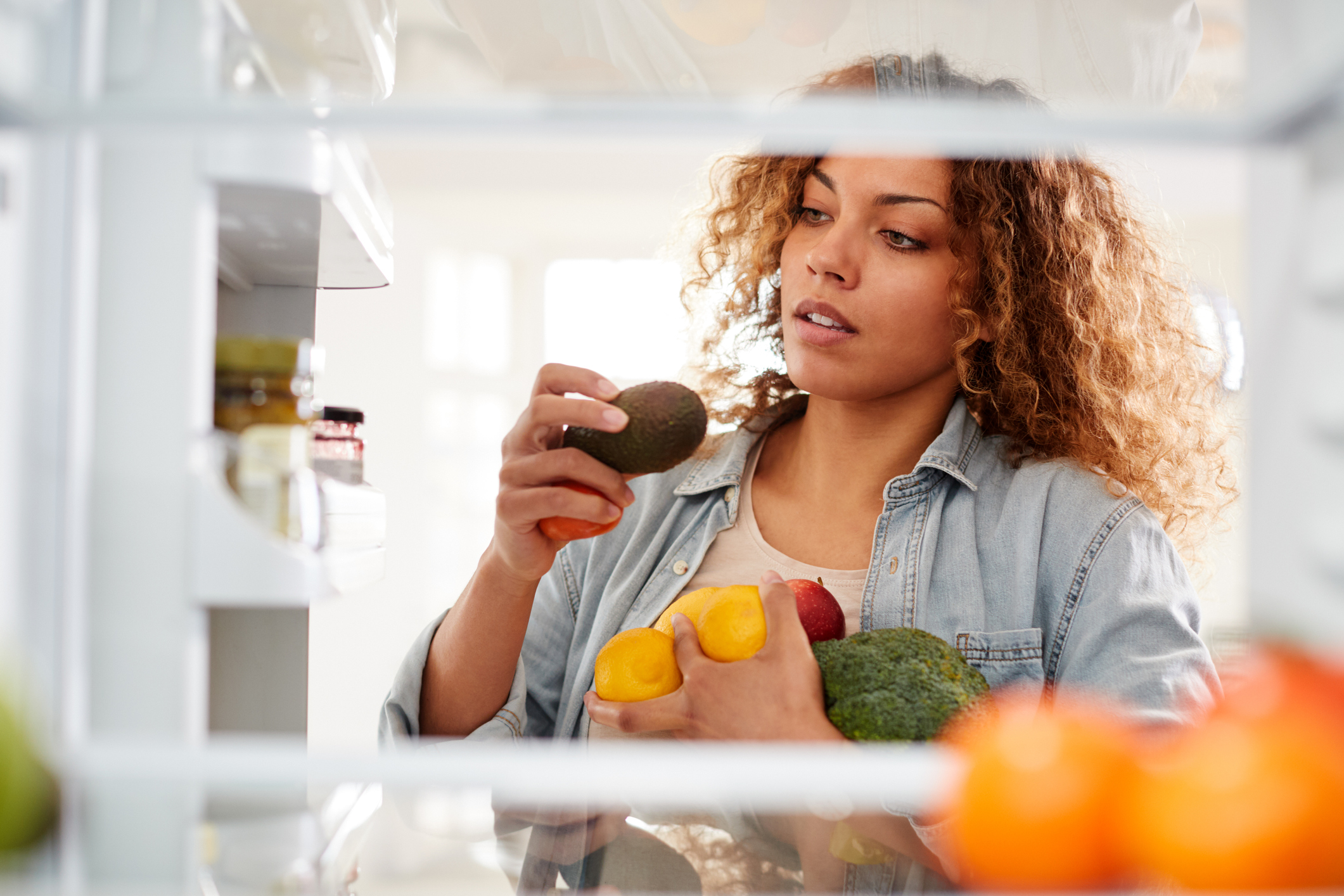Get Easy Health Digest™ in your inbox and don’t miss a thing when you subscribe today. Plus, get the free bonus report, Mother Nature’s Tips, Tricks and Remedies for Cholesterol, Blood Pressure & Blood Sugar as my way of saying welcome to the community!
10 science-based tips for keeping produce fresh longer

I don’t know about you, but I am plagued by the problem of wasted produce.
I tend to overbuy fresh vegetables, only to see (and smell) them go bad before I can eat them all.
Even my bananas, which I eat every day, often turn brown and soft in the bowl before I can get to them.
Well, I’ve recently learned that it’s not how much I’m buying that’s the problem. It’s how I’m storing my purchases that’s accelerating their ripening, and eventual spoiling, right before my eyes.
If you’ve been having the same problem, take heart. There are ways you can stock your kitchen with plenty of fresh fruits and vegetables, and not have them spoil right under your nose.
Here are nine science-based tips that will let you keep your produce fresh right up to the minute you’re ready to eat it. (And, some advice about your refrigerator).
9 ways to make fruits and veggies last
Never keep tomatoes and cucumbers together. Tomatoes produce ethylene, a gas that speeds ripening. And cucumbers are among the fruits and vegetables that are sensitive to it (so are asparagus, onions, eggplant and celery).
In the world of fruits, apples, pears, avocados and bananas are ethylene producers. Keep them away from ethylene-sensitive mangoes and grapes.
Leave the wax on. Apples, lemons, oranges, cucumbers, bell peppers and eggplants have a shiny, waxy look. That’s because they may have been given a coating of artificial wax to keep them from shrinking. To prevent premature spoilage and bruising, it’s OK to wait and wash this coating off when you’re ready to eat.
Trim your carrots. That lush-looking green carrot top actually draws nutrients and freshness out of the carrot itself. Slice off the tops, and refrigerate your carrots in the crisper drawer, stored loosely in a plastic bag. They should stay fresh for several weeks (you can use the greens in pesto or as a salad topping).
Keep bananas cool. They may be a tropical fruit, but your sunny kitchen counter is not the place for your bananas. Humid or warm air will turn them brown quickly. Keep ripened bananas in the fridge to make them last a few days longer. And, as mentioned earlier, keep them away from other produce.
Let onions breathe. Onions need good air circulation in order to avoid rotting. Store them in a cool, dry spot without plastic wrap. You can hang that mesh bag they come in on a hook in your pantry or make your own ventilated storage with a pair of old, clean pantyhose. Drop an onion in one leg and push it down to the toe. Then tie a knot above it, and drop another onion.
Keep berries cold. Strawberries, raspberries, blueberries and blackberries should be refrigerated below 40°F to lengthen their shelf life. And only wash your berries when you’re ready to eat them; moisture will turn them mushy, or cause them to mold more quickly.
Wrap celery in tin foil. Celery is sensitive to ethylene gas, but it will not go limp if you wrap it in tin foil and keep it away from other produce in your crisper drawer. It should last for several weeks this way.
Bag your lemons. I love a bowl full of bright yellow lemons on my kitchen counter. But kept there, they will quickly dry out and harden. Instead, seal them tightly in a plastic bag with all the air pressed out, and keep them in the fridge. They can stay juicy for up to a month this way.
Vent your mushrooms. I have particular trouble keeping mushrooms for more than a day or two. Now I know that those plastic-wrapped grocery containers trap moisture and make them rot almost immediately. Instead, I now keep them well-ventilated in a paper bag in the fridge, and they last for at least a week, sometimes more. And, like berries, it’s best to wash them just before using.
Keep your fridge clean
Light, air, temperature and time all affect how quickly your produce spoils. But, so do microorganisms like mold, yeast and bacteria — including listeria, which can thrive in a cold fridge.
For this reason, deep cleaning your fridge regularly will also add to the life of your fruits and vegetables. Wipe down the insides and shelves with white vinegar or soapy water.
And avoid packing too much food onto your refrigerator shelves or into your crisper drawer so that air can circulate.
Editor’s note: Did you know that when you take your body from acid to alkaline you can boost your energy, lose weight, soothe digestion, avoid illness and achieve wellness? Click here to discover The Alkaline Secret to Ultimate Vitality and revive your life today!
Sources:
Scientific Tips to Keep Your Produce Fresher Longer — Web MD













